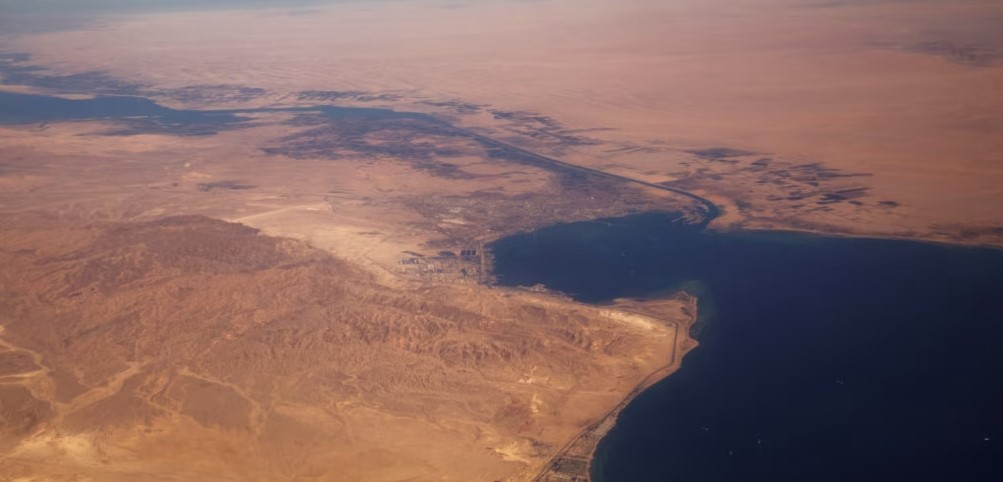PENTAGON: As Iranian-backed Houthi militants in Yemen continue attacks on international shipping lanes in the Red Sea, a coalition of about two dozen countries, including the U.S. and the U.K., has been working to secure the important waterway.
About 15 commercial ships have been damaged by Houthi drones or missiles since mid-November, and the U.S. says there are now between four and eight coalition ships in the Red Sea on any given day to help protect international vessels.
Last week the U.S. and British militaries launched their fourth combined operation against the Houthis since mid-January. The U.S. has also carried out near-daily strikes to take out incoming Houthi missiles and drones, along with weapons that were prepared to launch.
Noticeably absent from the coalition is China, even though about 40% of trade between Europe and Asia goes through the Red Sea and Suez Canal.
“We would welcome a productive role for China to play, but to my knowledge, at this stage they have not offered nor are they conducting any type of operations to help safeguard mariners or international shipping,” Pentagon press secretary Major General Pat Ryder said in response to a question from VOA on Thursday.
That sentiment appears to be something the military, the Biden administration and opposition Republicans in the U.S. agree on.
During a Senate hearing this week on security issues in the Red Sea, Republican Senator Mitt Romney of Utah was visibly frustrated as he asked administration officials why China wasn’t putting pressure on the Houthis or Iran.
“We’re out there with our flag flying and our men and women in harm’s way. China is the nation that I would presume is most impacted by closing off trade to the Red Sea, and yet they’re sitting on the sidelines pretending like they’re everybody’s friend,” he said.
Republican Senator Todd Young of Indiana added during the hearing, “Here we are in the midst of a real security crisis, which is for so many an economic and diplomatic crisis in the region, and China’s nowhere to be found,”
Yuan Mu, a spokesperson for China’s Embassy in Washington, told VOA via email last month that “on the whole, China stands ready to work with all parties to safeguard the safety of international shipping lanes.”
But since the Houthi attacks began ramping up in mid-November, U.S. special envoy for Yemen Tim Lenderking says the administration has seen a “certain degree of freeloading” from China and others.
“That is absolutely unacceptable. When we talk about an international problem that needs an international solution, we need the Chinese much more aggressively engaged,” Lenderking testified during the hearing.
Rather than taking part in the coalition’s missions to protect international ships, China has accused the U.S. and the U.K. of illegally attacking military sites used by Houthi rebels to launch missiles at commercial vessels. China’s envoy to the United Nations claims the actions are illegal because the U.N. Security Council has not authorized military action in Yemen.
China sends naval fleet
But even as China condemns the U.S.-led maritime coalition, Beijing has become so concerned with the crisis that its navy has escorted at least some Chinese ships through the waterway, and it is now reportedly sending a naval fleet to the Gulf of Aden.
According to China’s Xinhua News Agency, the 46th fleet of the Chinese People’s Liberation Army Navy embarked from Zhanjiang in Guangdong province for the gulf last week.
The fleet includes the guided-missile destroyer Jiaozuo, the missile frigate Xuchang and the comprehensive replenishment vessel Honghu, according to Xinhua. It is unclear whether the fleet has arrived in the Red Sea region, or what it will do once there.
Michael O’Hanlon, a senior Foreign Policy fellow at the Brookings Institution, warns that while the Chinese have tried to help with international problems in a few instances over the past decade, their involvement has not always been for “altruistic reasons.”
“There’s also the plausible explanation they could be sending ships just to gather intelligence on the performance of [the United States’] missile and drone intercept technology,” he told VOA.
He added that while he expects China to “try to help a little in the general cause,” the Chinese navy likely will be more focused on protecting its own ships from Houthi attacks amid spying on the U.S. and other major allies.
China’s navy started escorting Chinese cargo ships through the Red Sea in January, according to Sea Legend Shipping, a company based in Qingdao, China. The company has said that since then, the Chinese navy has provided security escorts for at least five cargo ships in the Red Sea.
Chinese officials have asked their Iranian counterparts to help stop Houthi attacks or risk harming business relations with Beijing, Reuters reported, citing Iranian officials.
Beijing does have some leverage in the region, as it is the largest buyer of crude oil exports from Iran, but the Chinese do not have enough leverage over Iran to stop these missile attacks, O’Hanlon said.
Although the Houthis have claimed that ships from China and Russia can safely pass through the Red Sea, a British oil tanker carrying Russian oil was hit by a Houthi missile and caught fire earlier this year.
Ely Karmon, a senior researcher at the International Institute for Counter-Terrorism and a professor at Reichman University in Israel, told VOA that China has been one of the biggest sufferers since the Houthi attacks began.
But O’Hanlon notes that while China has “substantial skin in the game” in terms of Red Sea shipping, China is also able to tap into its access to Russia and the Pacific for trade.
“Even if some big fraction of world shipping does normally go through the Red Sea, it’s not that hard to divert it, and it’s not that expensive to divert it,” he said.
VOA








Comment